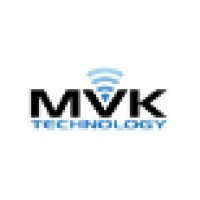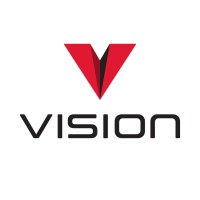

Enterprise Solutions Architect
⭐ - Featured Role | Apply direct with Data Freelance Hub
This role is for an "Enterprise Solutions Architect" in Houston, TX, on a long-term contract. Requires 7+ years in enterprise architecture focused on manufacturing/IT/OT integration, expertise in cloud platforms, and certifications like TOGAF or CISSP.
🌎 - Country
United States
💱 - Currency
$ USD
-
💰 - Day rate
-
🗓️ - Date discovered
September 25, 2025
🕒 - Project duration
Unknown
-
🏝️ - Location type
On-site
-
📄 - Contract type
Unknown
-
🔒 - Security clearance
Unknown
-
📍 - Location detailed
Greater Houston
-
🧠 - Skills detailed
#Security #Migration #Compliance #SAP #GDPR (General Data Protection Regulation) #AWS (Amazon Web Services) #Computer Science #Data Modeling #"ETL (Extract #Transform #Load)" #MQTT (Message Queuing Telemetry Transport) #Azure #Cybersecurity #Leadership #Scala #Oracle #AI (Artificial Intelligence) #API (Application Programming Interface) #Automation #ML (Machine Learning) #Lean #Cloud #IoT (Internet of Things) #CRM (Customer Relationship Management)
Role description
Title: Enterprise Solutions Architect
Location: Houston, TX
Type: Long-term contract.
Schedule: On-site.
Position Overview
The Enterprise Architect is responsible for designing and implementing enterprise-wide IT and operational technology (OT) solutions, with a focus on aligning manufacturing processes, IT/OT systems, and IT systems consolidation. This role ensures that the organization's technology architecture supports business objectives, enhances operational efficiency, and drives digital transformation in a manufacturing environment.
Key Responsibilities
• Strategic Architecture Planning:
• Develop and maintain a comprehensive enterprise architecture framework that integrates manufacturing, IT, and OT systems to support business goals.
• Align technology strategies with organizational objectives, ensuring scalability, security, and resilience.
• Identify opportunities for IT/OT convergence to optimize manufacturing processes and data flow.
• IT/OT Integration:
• Design and implement solutions to integrate IT and OT environments, enabling seamless communication between manufacturing systems (e.g., SCADA, PLCs, MES) and enterprise IT systems (e.g., ERP, CRM).
• Ensure cybersecurity measures are embedded in IT/OT integration to protect critical manufacturing infrastructure.
• Collaborate with manufacturing teams to modernize legacy OT systems and enable real-time data analytics.
• IT Systems Consolidation:
• Lead initiatives to consolidate disparate IT systems, reducing complexity and improving operational efficiency.
• Evaluate and rationalize existing applications, platforms, and infrastructure to eliminate redundancies and optimize resource utilization.
• Develop migration strategies for legacy systems to modern, cloud-based, or hybrid architectures.
• Manufacturing Technology Optimization:
• Architect solutions to enhance manufacturing operations, including automation, IoT, and Industry 4.0 technologies.
• Support the adoption of smart manufacturing practices by integrating advanced analytics, AI, and machine learning into production workflows.
• Ensure alignment between manufacturing technology investments and enterprise-wide digital transformation goals.
• Stakeholder Collaboration:
• Work closely with business leaders, manufacturing teams, IT/OT teams, and external vendors to gather requirements and ensure alignment.
• Provide technical guidance and leadership to cross-functional teams during solution design and implementation.
• Communicate complex technical concepts to non-technical stakeholders to drive buy-in and adoption.
• Governance and Compliance:
• Establish and enforce architecture standards, policies, and best practices across IT and OT domains.
• Ensure compliance with industry regulations (e.g., NIST, ISO, GDPR) and cybersecurity standards for manufacturing and IT systems.
• Conduct regular architecture reviews to ensure alignment with evolving business and technology needs.
Qualifications
• Education: Bachelor’s or Master’s degree in Computer Science, Information Technology, Engineering, or a related field.
• Experience:
• 7+ years of experience in enterprise architecture, with a focus on manufacturing, IT/OT integration, or IT systems consolidation.
• Proven track record of designing and implementing complex IT/OT solutions in a manufacturing environment.
• Experience with cloud platforms (e.g., AWS, Azure), ERP systems (e.g., SAP, Oracle), and OT technologies (e.g., SCADA, PLCs, MES).
• Technical Skills:
• Expertise in enterprise architecture frameworks (e.g., TOGAF, Zachman).
• Strong knowledge of IT/OT convergence, including protocols like OPC UA, MQTT, and industrial IoT platforms.
• Familiarity with cybersecurity standards and tools for securing IT/OT environments.
• Proficiency in system integration, data modeling, and API design.
• Soft Skills:
• Excellent problem-solving and analytical skills.
• Strong communication and stakeholder management abilities.
• Ability to lead cross-functional teams and manage complex projects.
Preferred Qualifications
• Certifications such as TOGAF, CISSP, or Certified Manufacturing Engineer (CMfgE).
• Experience with Industry 4.0 technologies, including IoT, AI, and digital twins.
• Knowledge of lean manufacturing principles and process optimization.
Title: Enterprise Solutions Architect
Location: Houston, TX
Type: Long-term contract.
Schedule: On-site.
Position Overview
The Enterprise Architect is responsible for designing and implementing enterprise-wide IT and operational technology (OT) solutions, with a focus on aligning manufacturing processes, IT/OT systems, and IT systems consolidation. This role ensures that the organization's technology architecture supports business objectives, enhances operational efficiency, and drives digital transformation in a manufacturing environment.
Key Responsibilities
• Strategic Architecture Planning:
• Develop and maintain a comprehensive enterprise architecture framework that integrates manufacturing, IT, and OT systems to support business goals.
• Align technology strategies with organizational objectives, ensuring scalability, security, and resilience.
• Identify opportunities for IT/OT convergence to optimize manufacturing processes and data flow.
• IT/OT Integration:
• Design and implement solutions to integrate IT and OT environments, enabling seamless communication between manufacturing systems (e.g., SCADA, PLCs, MES) and enterprise IT systems (e.g., ERP, CRM).
• Ensure cybersecurity measures are embedded in IT/OT integration to protect critical manufacturing infrastructure.
• Collaborate with manufacturing teams to modernize legacy OT systems and enable real-time data analytics.
• IT Systems Consolidation:
• Lead initiatives to consolidate disparate IT systems, reducing complexity and improving operational efficiency.
• Evaluate and rationalize existing applications, platforms, and infrastructure to eliminate redundancies and optimize resource utilization.
• Develop migration strategies for legacy systems to modern, cloud-based, or hybrid architectures.
• Manufacturing Technology Optimization:
• Architect solutions to enhance manufacturing operations, including automation, IoT, and Industry 4.0 technologies.
• Support the adoption of smart manufacturing practices by integrating advanced analytics, AI, and machine learning into production workflows.
• Ensure alignment between manufacturing technology investments and enterprise-wide digital transformation goals.
• Stakeholder Collaboration:
• Work closely with business leaders, manufacturing teams, IT/OT teams, and external vendors to gather requirements and ensure alignment.
• Provide technical guidance and leadership to cross-functional teams during solution design and implementation.
• Communicate complex technical concepts to non-technical stakeholders to drive buy-in and adoption.
• Governance and Compliance:
• Establish and enforce architecture standards, policies, and best practices across IT and OT domains.
• Ensure compliance with industry regulations (e.g., NIST, ISO, GDPR) and cybersecurity standards for manufacturing and IT systems.
• Conduct regular architecture reviews to ensure alignment with evolving business and technology needs.
Qualifications
• Education: Bachelor’s or Master’s degree in Computer Science, Information Technology, Engineering, or a related field.
• Experience:
• 7+ years of experience in enterprise architecture, with a focus on manufacturing, IT/OT integration, or IT systems consolidation.
• Proven track record of designing and implementing complex IT/OT solutions in a manufacturing environment.
• Experience with cloud platforms (e.g., AWS, Azure), ERP systems (e.g., SAP, Oracle), and OT technologies (e.g., SCADA, PLCs, MES).
• Technical Skills:
• Expertise in enterprise architecture frameworks (e.g., TOGAF, Zachman).
• Strong knowledge of IT/OT convergence, including protocols like OPC UA, MQTT, and industrial IoT platforms.
• Familiarity with cybersecurity standards and tools for securing IT/OT environments.
• Proficiency in system integration, data modeling, and API design.
• Soft Skills:
• Excellent problem-solving and analytical skills.
• Strong communication and stakeholder management abilities.
• Ability to lead cross-functional teams and manage complex projects.
Preferred Qualifications
• Certifications such as TOGAF, CISSP, or Certified Manufacturing Engineer (CMfgE).
• Experience with Industry 4.0 technologies, including IoT, AI, and digital twins.
• Knowledge of lean manufacturing principles and process optimization.




